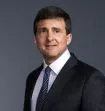Keywords: FCC, in-flight wireless service
On December 12, the Federal Communications Commission (FCC or Commission) officially launched its proceeding to consider a proposal that would permit airlines to install equipment on aircraft that could expand the availability of in-flight wireless services to passengers. The comment period will begin 30 days after publication in the Federal Register, which we expect sometime in January 2014.
By way of background, the FCC prohibited in-flight mobile cellular use in 1991 due to concerns about harmful interference to airline navigation systems, networks on the ground, or both. Since that time, technology has evolved to include a greater availability of spectrum suitable for mobile services and the development of specialized onboard systems that can effectively prevent interference with terrestrial wireless networks. Also, although consumer use of mobile voice service has steadily declined, use of data services—accessed through mobile tablets and smartphones—is exploding. Consumers have come to expect "anytime-anywhere" communications capabilities, including while traveling by air.
Noting its obligation both to keep pace with new technical developments and to expand consumer choice, the FCC initiated this proceeding to consider permitting in-flight use of wireless devices under certain conditions. First, an airline would need to equip its aircraft with "specialized onboard equipment" that would prevent harmful interference with wireless networks located on the ground. Second, the airline would have to elect to offer its passengers a new choice for in-flight wireless broadband access.
While there currently exist a number of businesses that offer consumers the ability to purchase in-flight mobile broadband services, these entities offer access to unlicensed Wi-Fi systems, FCC-licensed air-to-ground systems, or both. Under the new proposal, the FCC would create another option: Consumers would gain in-flight access to mobile services with their current wireless carrier consistent with their plan. In other words, if an airline chooses to install the new onboard equipment, consumers would be able to use their mobile wireless device in flight.
The FCC stresses, however, that it cannot require airlines either to install onboard access systems or to provide mobile broadband access to its passengers. Rather, under the FCC's proposal, individual airlines would be free, consistent with the FCC's rules and relevant Federal Aviation Administration and Department of Transportation rules, to make their own decisions about whether and how to offer mobile wireless services at all, and, if so, which services—including Internet access, emailing, texting, and voice calls—to offer.
Even though the process is at its earliest stage, we nonetheless conclude that action on the FCC proposal is far from certain. As a preliminary matter, the initial news reports regarding the FCC's plans created a firestorm. Given some reporters' incorrect conclusions that the proposal would immediately lead to in-flight voice calls, the commissioners and staff were inundated with negative phone calls and emails. Next, at the FCC's December 12 meeting, we learned that, while all five FCC commissioners oppose in-flight voice calls, only two of the five FCC commissioners fully support the proposal. Objections are twofold, and pertain to the cumbersome licensing framework and concerns about passenger safety. Moreover, a bipartisan group of lawmakers has already introduced legislation to outlaw in-flight phone calls.
Originally published December 17, 2013
Learn more about our Telecommunications practice.
Visit us at mayerbrown.com
Mayer Brown is a global legal services provider comprising legal practices that are separate entities (the "Mayer Brown Practices"). The Mayer Brown Practices are: Mayer Brown LLP and Mayer Brown Europe – Brussels LLP, both limited liability partnerships established in Illinois USA; Mayer Brown International LLP, a limited liability partnership incorporated in England and Wales (authorized and regulated by the Solicitors Regulation Authority and registered in England and Wales number OC 303359); Mayer Brown, a SELAS established in France; Mayer Brown JSM, a Hong Kong partnership and its associated entities in Asia; and Tauil & Chequer Advogados, a Brazilian law partnership with which Mayer Brown is associated. "Mayer Brown" and the Mayer Brown logo are the trademarks of the Mayer Brown Practices in their respective jurisdictions.
© Copyright 2013. The Mayer Brown Practices. All rights reserved.
This Mayer Brown article provides information and comments on legal issues and developments of interest. The foregoing is not a comprehensive treatment of the subject matter covered and is not intended to provide legal advice. Readers should seek specific legal advice before taking any action with respect to the matters discussed herein.

